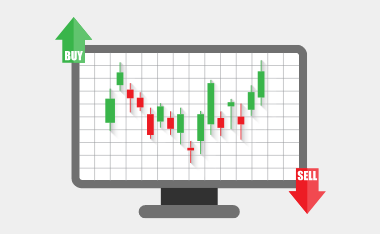Preserving Trading Capital: The Pillar of Successful Trading

Trading in financial markets can be exhilarating and profitable, but it also comes with significant risks.
Many novice traders enter the markets with dreams of quick riches, only to find themselves facing substantial losses.
The key to long-term success in trading is not just about making profits but also about preserving your trading capital.
In this article, we’ll look into the critical importance of preserving trading capital and explore how high-probability trading strategies, such as the LIFT Trading Method, which employs focused risk management techniques, can serve as strong, sustainable trading methods.
The Importance of Preserving Trading Capital
The Foundation of Longevity
Preserving trading capital is the cornerstone of longevity in the trading world.
Without sufficient capital, a trader is unable to sustain positions or capitalise on future market opportunities.
Trading capital is like the fuel in a vehicle; once it’s depleted, the journey ends.
Thus, industry experts acknowledge that the primary goal for any trader, especially in the early stages, should be to protect their capital.
As the legendary trader Paul Tudor Jones famously said, “The most important rule of trading is to play great defense, not great offense.”
Psychological Stability
A depleted trading account can have severe psychological impacts, especially on newer traders.
The stress and anxiety associated with significant losses can lead to poor decision-making and impulsive trades, which in turn, can exacerbate losses.
By focusing on capital preservation, traders maintain a more stable psychological state, which is essential for making rational and strategic decisions.
“The elements of good trading are: (1) cutting losses, (2) cutting losses, and (3) cutting losses. If you can follow these three rules, you may have a chance,” advises Ed Seykota, a renowned trader featured in the book Market Wizards.
Opportunity to Learn and Grow
Trading is a continuous learning process. Preserving capital allows traders to stay in the game longer, providing more opportunities to learn from the markets, refine strategies, and improve skills.
Every trade, whether successful or not, offers valuable insights that can only be gained if the trader is still active and has the capital to trade.
“The goal of a successful trader is to make the best trades. Money is secondary,” said Alexander Elder, a respected trading psychologist and author.
High-Probability Trading Strategies: The LIFT Trading Method
High-probability trading strategies are designed to maximise the chances of successful trades while minimising risks.
One approach is the LIFT Trading Method, which combines proven indicators and strategies with stringent risk management techniques.
Let’s take a look at how this method works and how it can help long term sustainable consistency in trading.
Leveraging Proven Indicators
The LIFT Trading Method utilises a combination of proven technical indicators to limit the potential for loss by avoiding market conditions where there is a low probability of finding a profitable trade.
The process then identifies potentially high-probability trading opportunities so that the trader is in a better position to make trading decisions.
By leveraging these indicators, traders can increase their probabilities of executing successful trades.
As Paul Tudor Jones, an expert in technical analysis, noted, “Where you want to be is always in control, never wishing, always trading, and always, first and foremost protecting your butt.:
Focused Risk Management Techniques
One of the key components of the LIFT Trading Method is its focused risk management techniques.
Risk management is crucial in preserving trading capital and ensuring long-term success.
The LIFT method employs a combination of tight stop-losses and focused profit-lock strategies to manage risk effectively.
Tight Stop-Losses
A stop-loss is a pre-determined price level at which a trade is closed to prevent further losses.
Tight stop-losses are set close to the entry price, ensuring that losses are minimal if the trade does not go as anticipated.
This approach allows traders to control their risk exposure and preserve capital for future opportunities.
“I always place a stop immediately after a trade is executed. That way, my risk is always well-defined,” said Bruce Kovner, one of the most successful traders in history.
Focused Profit Lock Strategy
In addition to tight stop-loss orders, the LIFT Trading Method incorporates a focused profit lock strategy.
This strategy involves setting specific profit targets and adjusting take profit levels to lock in profits as the trade moves in the desired direction.
By locking in profits, traders can secure gains and reduce the risk of losing unrealized profits due to sudden market reversals.
As Jesse Livermore, a pioneering trader, once said, “Profits always take care of themselves, but losses never do.”
The combination of proven indicators and focused risk management techniques has helped many traders who use the LIFT Trading Method protect their capital and build a lifestyle income.
Here are a few reasons why:
Consistency and Reliability
The LIFT Trading Method is based on indicators and strategies that have stood the test of time.
These tools have been extensively tested and proven to provide reliable signals.
By following a methodical approach, traders can achieve consistent results over time.
“Consistency is the key to successful trading,” emphasizes Larry Hite, a prominent hedge fund manager.
Reduced Emotional Influence
Emotions can cloud judgment and lead to impulsive decisions.
The LIFT Trading Method, with its structured approach and predefined rules, helps reduce the influence of emotions on trading decisions.
This method encourages discipline and adherence to a trading plan, which are crucial for long-term success.
“The market is a device for transferring money from the impatient to the patient,” observed Warren Buffett, a legendary investor.
Adaptability
The financial markets are dynamic and ever-changing.
The LIFT Trading Method is adaptable and can be applied to various market conditions.
Whether it’s a trending market, a range-bound market, or a moderately volatile environment, the method’s combination of indicators and risk management techniques allows traders to adjust their strategies accordingly.
“Adaptability is about the powerful difference between adapting to cope and adapting to win,” said Max McKeown, a strategic management expert.
Capital Preservation
At its core, the LIFT Trading Method is designed to preserve trading capital.
By employing tight stop-loss orders and focused profit-lock strategies, traders can protect their capital and minimize losses.
This preservation of capital ensures that traders remain in the game and have the opportunity to capitalise on future market opportunities.
“When in doubt, get out and get a good night’s sleep. I’ve done that lots of times and the next day everything was clear… While you are in [the position], you can’t think. When you get out, then you can think clearly again.” said Michael Marcus, a veteran trader.
Conclusion
In the world of trading, preserving capital is the key to long-term success.
Without sufficient capital, traders cannot sustain positions, capitalize on opportunities, or learn from the markets.
High-probability trading strategies, such as the LIFT Trading Method, provide a structured and predictable approach to trading.
Successful long-term sustainability in trading is not about making lots of low-probability trades and experiencing massive losses.
Long-term success is about protecting capital by limiting the number of potential losing trades first and then maximising the profitability of your profitable trades.
By leveraging proven indicators and focused risk management techniques, traders can increase their chances of success while preserving their capital.
For traders looking to achieve long-term success, adopting such a methodical approach is essential.
Remember, in trading, it’s not just about making profits; it’s about staying in the game and continuously learning and growing.
By preserving your trading capital, you ensure that you have the resources to navigate the markets and achieve your trading goals.
Disclaimer
The information, strategies, techniques and approaches discussed in this article are for general information purposes only and studies of potential options. The Trading Coach International does not necessarily use, promote nor recommend any strategies discussed in this article. The information in this article may not be suitable for your personal financial circumstances and you should seek independent qualified financial advice before implementing any financial strategy. The Trading Coach International is not a financial advisor and does not have AFS registration.


















